A lithium hotspot, Imperial County sees 'suspicious' flow of dark money in primary race
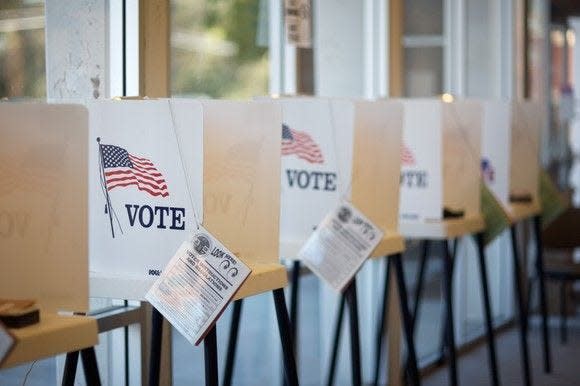
Anonymous, "dark money" groups spent heavily in rural, impoverished Imperial County's March primary races, in amounts that experts say are "highly abnormal" and "suspicious" for a remote corner of Southern California that also had the lowest voter turnout in the state.
The faceless groups tried to elect three candidates to the county’s five-member board of supervisors, donated to a powerful local water district incumbent, and attempted to oust another outspoken water district director, records and interviews obtained by The Desert Sun show.
The donations were made in the same election cycle that saw allegations an Imperial County supervisor was offered up to $500,000 not to run, raising more questions about who is trying to gain influence in the county.
That candidate, Diahna Garcia-Ruiz, broke her silence about the offer in a recent interview with The Desert Sun.
Lithium Valley: Imperial County a lithium hotspot
Imperial County, four hours southeast of Los Angeles at the Mexico border, has drawn attention from outsiders in recent years because it basks in abundant sunshine for solar power, is the site of huge stores of lithium used in electric vehicle batteries, and its irrigation district enjoys unparalleled rights to Colorado River water, a key ingredient of any ambitious development dream in the West.
But political insiders here caution not to assume outside developers, some of whom gave openly in the primaries, are the dark money donors.
In total, an analysis of campaign finance reports shows five organizations spent nearly $150,000 combined on one supervisor candidate who won, another who lost and a third who will be in a runoff in November. The groups aren't required to disclose the source of the money. Two groups also spent almost $25,000 in two Imperial Irrigation District races.
About the donations
Candidate, primary race | Dark money, direct and indirect | Named large donations, direct and indirect | Loans-Cash to self | Primary outcome |
Peggy Price, Imperial County District 2 | $54,000 in donations to her and to EPIC for her | $25,364.71 (including $19,694.71 from Imperial Valley Works: Sponsored by San Diego-Imperial Counties Labor) | $14,100 Loans | Won |
Martha Cardenas-SinghImperial CountyDistrict 3 | $60,000 in donations to her and to EPIC for her | $16,100 (including $5,100 from Coachella Valley businessman Nachattar S. Chandi) | $10,600 Cash | In runoff |
Raul Navarro, Imperial County District 4 | $30,000 in donations to him and to EPIC for him | Ireri's Design, $800 for banners | $900Loan | Lost |
Nearly all the groups listed addresses miles from Imperial County — or in one case at a UPS store in El Centro, the county seat — on campaign disclosure forms, and The Desert Sun found little to no proof each is physically located at the addresses given.
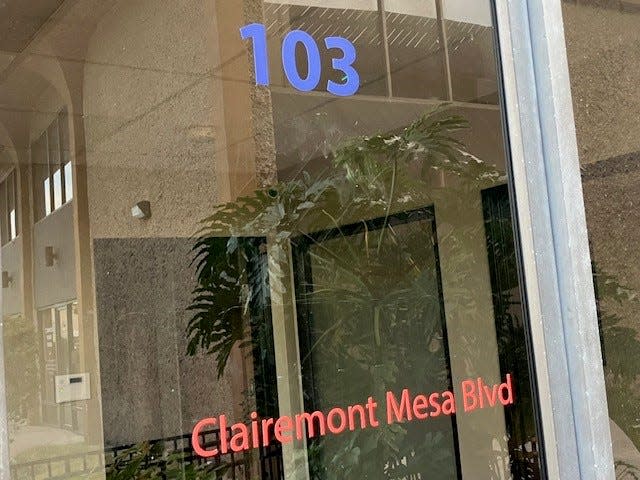
Campaign finance experts said that sort of "brick wall" secrecy is common in national races, though less data is available on local races.
Much of the March primary money was funneled through an independent political action committee formed in January, “Economic Prosperity for Imperial County” or EPIC PAC, that paid for targeted mailers, phone calls and texts supporting the three board candidates and harshly criticizing their opponents. Donors to EPIC are The OTG Group, the Border Group, and Value Auto Service — all of which listed San Diego County addresses on required campaign disclosure forms, with no apparent evidence they are physically located there. The OTG Group Inc. was formed in 2022, according to state records, and lists an agent in Los Angeles, not San Diego, affiliated with a company that specializes in forming corporations in various states for customers.
The candidates EPIC backed were Margarita “Peggy” Price, who won the District 3 seat; Raul Navarro, who lost in District 4; and Martha Cardenas-Singh, who got the most votes out of three candidates in District 2 but will be in a November run-off since no one got over 50% in that race.
California Super Tuesday Primary: See the official election results
A separate PAC, Committee to Defeat Director Javier Gonzalez for Irrigation Board of Directors, with the same donors as EPIC, spent nearly $20,000 on attack mailers trying to defeat incumbent IID director Javier Gonzalez. He came in first but also failed to get more than 50% of votes cast, and will face Luis Pacheco in November. Florida-based NJB Companies also paid for $5,000 worth of Facebook ads for Cardenas-Singh, who will face challenger Diahna Garcia-Ruiz. The OTG Group also gave $5,000 to unopposed IID District Division 2 incumbent JB Hamby.

Imperial County supervisor candidate alleges $500,000 offer, explains silence
Garcia-Ruiz, a postmaster in Heber who is vice chair of the county Democratic Central Committee, has also told multiple people she was offered up to $500,000 not to run for the seat shortly after she announced her candidacy late last year. Such a payment would be a crime under state law, experts say, punishable by up to three years in prison.
She recently confirmed the offer to The Desert Sun, but declined to name of the person who made the offer, because she is worried it could harm that person’s livelihood.
She said a man brought a $250,000 cashier’s check to her home and said it was to keep her from running. She said that when she declined, he told her the people who sent him said the amount could be doubled if necessary. Garcia-Ruiz told The Desert Sun that an investigation by the district attorney is underway, and she expects his office may try to compel her to testify, but has not done so yet. Imperial County District Attorney George Marquez did not respond to requests for comment.
Cardenas-Singh was the only other candidate in the race at the time the offer was made. Ashley Bertussi entered the contest a short while later, and came in third. She has not responded to a request for comment.
In an email responding to questions, Cardenas-Singh said, "It is unheard of to think that a local candidate would (be) offered such an extraordinary of money to not run for office."
No one has been charged with wrongdoing.
Earlier coverage: Candidate said she was offered — and turned down — $500,000 not to run
In Imperial County, 'What are they after?’
All told, between the alleged half-million-dollar anonymous offer not to run and nearly $200,000 from opaque groups, the "dark money" total in the county's primary races could run as high as $700,000, atop tens of thousands more in regular campaign contributions.
Recipients of the funds and their opponents had differing reactions.
"Wow, that's a lot of cheddar in this valley," said incumbent fourth district Supervisor Ryan Kelley, who easily fended off EPIC-backed Navarro and three other challengers to win a fourth term. "My concern is, what are they after? I'm not trying to stop them from doing it, as long as it's legal ... but the electorate should know who these people are and what they're standing for ... if they're trying to influence local elections."
In addition to $25,000 donated by the trio of San Diego entities directly to him or to EPIC PAC efforts that supported him, Navarro's campaign got $5,000 from Riverside-based Valley Environmental Associates. Attempts to find more information about that group were also unsuccessful.
"I got some ($5,000 (checks) in the mail. I have no idea who they are, honestly, none at all," said Navarro, a political science instructor at Imperial Valley College and Calipatria United School District board trustee. He said as a self-funded, grassroots candidate, he had no issues with receiving the money.
"I didn't have a big budget, so yeah, if I'm broke, if I have a minimum amount for my campaign, I mean, let's get some stuff going," he said. "I think it's normal for people to be getting campaign contributions. America's a democracy where people get to choose who they want to choose to support."
Supreme Court ruling allows 'dark money' donors
Why anonymous donors would want to pour $700,000 into local races in a frequently overlooked California county at the Mexican border may remain a mystery.
A 2010 U.S. Supreme Court ruling, Citizens United v. Federal Election Commission, and related decisions allow so-called “dark money” donors to contribute to elections, often via equally anonymous political action committees. Offering to pay someone not to run doesn't necessarily violate campaign laws, but is a potential crime punishable by up to three years in prison under separate California codes.
Having so much money flow into one region's local races "is very abnormal," said Anna Massoglia, who investigates dark money for Open Secrets, a Washington, D.C., organization that tracks campaign finances.
"That is a huge sum for that type of area," she said. "Obviously at the federal level, you do see those larger amounts, but ... it's very atypical to see that type of thing in those local elections." She added, "It's much easier to sway local elections with a much smaller amount of money typically. So that sounds like it really raised the cost of those races around there."

But second district candidate Cardenas-Singh, who received the most fiscal support from anonymous groups in the March primary, said it is not uncommon to see such sums in county races in Southern California. The EPIC PAC reported receiving $45,000 in donations for her candidacy, and some of the groups that donated to EPIC also gave directly to her, according to her campaign disclosure forms.
"Contributions to elections are common, especially in elections of such powerful seats like BOS (Board of Supervisors) ... therefore it is not uncommon to receive unsolicited contributions from individuals and entities," Cardenas-Singh said in an email.
As for the amounts spent, she pointed to, among others, the Imperial Valley First group, which in 2012 spent $200,000 on local races, and in 2018 a reported $52,000 on IID races. But that group listed the names of the people the money came from, largely county farmers concerned about apparent sweetheart deals for some water district directors, and about their rights to Colorado River water. The group doesn't appear to have been active in this year's primary.
Cardenas-Singh said she had no idea who individuals behind the groups that funded her are, but reported everything that is required. She said it would be illegal for her to contact the groups to find out why they backed her. State law bans coordination and communication between "independent expenditure" committees and candidates they support. That would be true for the EPIC PAC, but not for groups who gave directly to her campaign, like The OTG Group, Value Auto Service, or NJB Companies.
Her opponent, Garcia-Ruiz, said she had not received any money from donors she does not know, and would not accept it if offered. "It may be legal, but I think it's unethical," she said.
But Hamby, who ran unopposed for re-election to IID's division 2, said, "campaigns cost money, to be able to communicate what you're doing on behalf of people in those four years between election. It is not free."
As for gaining influence via checks, he said, "My vote is influenced by nothing but the public interest."
Price, who beat her only opponent in the primary and will become third district supervisor in September, also received direct and indirect support from the anonymous donors to EPIC. She did not respond to a request for comment, and her opponent, Felipe Irigoyen, who did not receive any such funds, declined to comment.
IID's Gonzalez also did not respond to requests for comment about the attack pieces against him paid for by unknown individuals.

What's behind the EPIC PAC curtain?
So who are the anonymous donors?
"That is the question that everyone has been asking," former county supervisor and current industry consultant Wally Leimgruber said in an email. "Hopefully we will know before the November General Election."
The EPIC PAC lists an address on the second floor of the historic Mission Inn in Riverside, 160 miles north of the Board of Supervisors chambers in El Centro, in the same office as Mark Troast, a veteran Riverside County Republican staffer and political consultant who is also a pledged Trump delegate at this year’s Republican National Convention, according to a comparison by The Desert Sun of county campaign filings, state business records and other documents.
A former congressional aide to then-Rep. Mary Bono, Troast made headlines in recent years for a gun-toting online post the day after a mass shooting that killed 49 people in Orlando, Florida, and for coordinating an unsuccessful 2020 run by a janitor named Raul Ruiz against the incumbent 38th District Democratic congressman of the same name. Troast has also been a campaign consultant for Riverside County Sheriff Chad Bianco in 2022 and other candidates.
Imperial County has long been a Democratic stronghold, but Republicans have made inroads, with Steve Garvey trouncing U.S. Rep. Adam Schiff, a Democrat, there in the March primary for the race to replace deceased Sen. Dianne Feinstein.
But some of the Imperial candidates that EPIC funded are Democrats.
EPIC’s treasurer, Julie Mitchell, said Troast also runs a separate campaign finance compliance business, for which she works and manages other staff. She referred The Desert Sun to Chris Collier, a Coachella Valley-based political advertising and economic development consultant for more information.
Collier said he could not disclose who exactly his clients were.
“That would be unethical ... it's between my client and I, that's all,” Collier said. "The public should should know what the public is allowed to know. I know there's public filings for that. That not my area of expertise. I run ads."
Collier, who said he has done work across the West, said the EPIC PAC was one of eight clients his business, Pacific Campaign Solutions, worked with in eight California counties, from Imperial north to Tulare, in the run-up to the March 5 primary. He said most of their candidates won or advanced to the general election in seven of the counties.
Collier said his team strategizes with clients about campaign messaging and tactics, and based on polling, sends targeted mailers and online messages to select voters. He declined to comment on negative campaign materials.
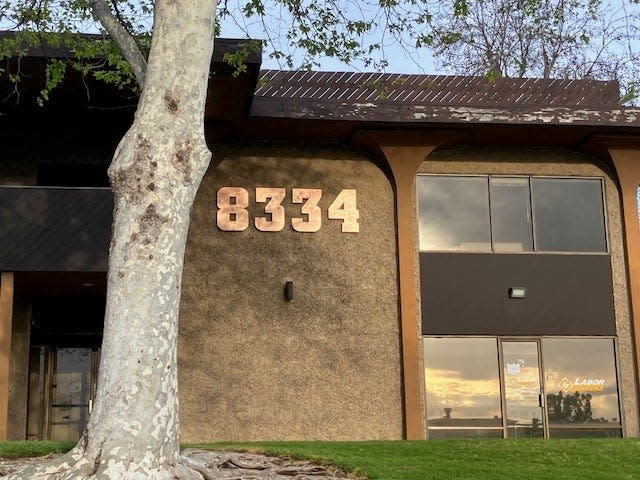
The addresses listed for organizations that donated to EPIC and the three candidates — The OTG Group, the Border Group, and Value Auto Service — all listed San Diego County addresses on required campaign disclosure forms. Visits and calls to the addresses revealed empty or partly empty commercial and industrial buildings. The OTG Group listed an address for an empty warehouse recently purchased and being renovated by Meals on Wheels of Greater San Diego County. The Border Group listed an Encinitas address where a shop selling tie dyed and other clothing is located.
Daniel Arroyo, the principal officer for EPIC and treasurer for the committee to oust IID director Gonzalez, listed an El Centro UPS store as his address. He did not return phone or email requests for comment.
Do campaign regulations allow phantom addresses?
Massoglia, of Open Secrets, said using phantom addresses is a tried and true tactic of donors in federal and state races, though some jurisdictions try to regulate it.
“It’s common to run into a brick wall as you try to trace all the relationships,” she said.
Imperial County Registrar Linsey Dale, whose office maintains the public election filings, said while her office is in “regular, constant communication” with the California Fair Political Practices Commission, it would be FPPC or other authorities who handle any campaign violations.
Lindsey Nakano, senior legislative counsel for the FPCC, said a committee must list an address that is not a P.O. Box, and must disclose a contributor’s street address, "so an address not affiliated with the contributor may not meet that requirement."
She said violations can be pursued in three ways: by the FPCC's enforcement division, via criminal prosecution by a local district attorney or the state attorney general; or "civil action by the public, certain government agencies or the (FPPC) enforcement Division."
In practice, the agency often issues advisory or warning letters asking for refiled statements with corrections, but it can fine a person or entity up to $5,000 per violation.
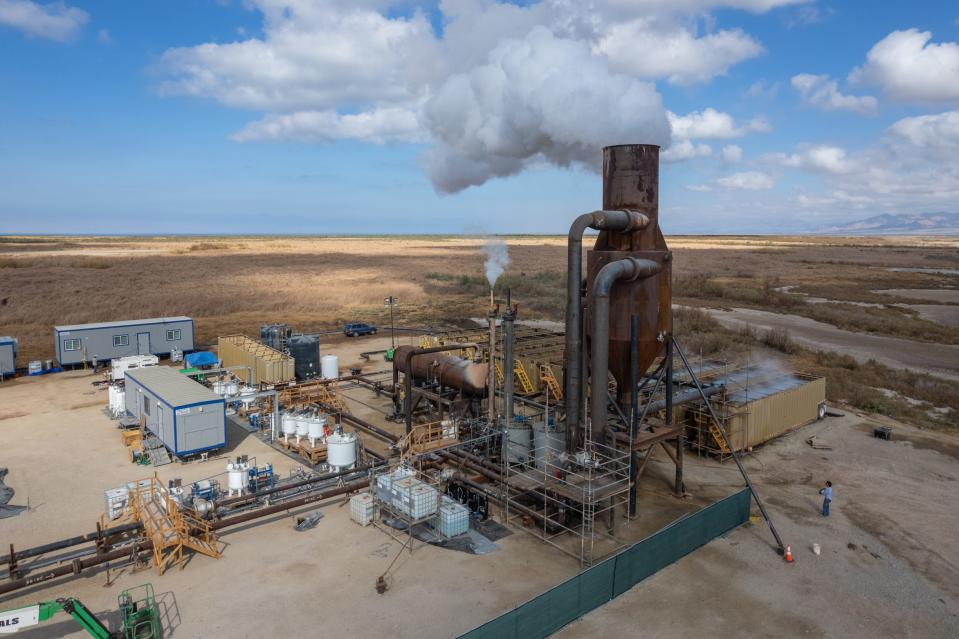
Lithium Valley: Imperial County powers into the limelight
While some Imperial County-based politicos cautioned against assuming natural resources are what's attracting the money, Massoglia said such major discoveries have led to outside money being pumped into rural areas elsewhere.
Big donations were also made by energy companies and labor groups with a stake in a potential lithium boom. A group called "Imperial Valley Works: Sponsored by San Diego-Imperial Counties Labor," gave nearly $20,000 to incoming District 2 supervisor Price. State and regional trade unions want project labor agreements on all lithium-related construction.
IID's Hamby received $10,000 from Insight Group LLC, which has the same address in the city of Imperial as Controlled Thermal Resources, and whose agent is the geothermal and lithium company's chief legal counsel. IID guaranteed water supply for CTR's initial project. Hells' Kitchen Geothermal, a CTR subsidiary, also donated $4,000 to IID director Gonzalez and and $2,000 to elect Price.
Despite the hope of eventual jobs and tax revenue from a renewables manufacturing boom, Imperial County has long coped with entrenched poverty and pollution. It regularly has the highest unemployment rate in California and the U.S., and census figures show its poverty rate is nearly twice that of the nation and the state. The county’s 180,000 residents could also be left with a single hospital, as El Centro Regional Medical Center has teetered financially.
Long-overlooked, the county has garnered headlines and major outside political, business and labor interest in the past few years, thanks to a vast supply of lithium tucked deep below ground near the Salton Sea that could supply 375 million electric vehicles. Visitors from the White House, Detroit automakers and South Korean battery makers have all made the trek to or invested in projects in the county in the past few years.
“Multiple (anonymous) groups donating as all that is going on is suspicious,” Open Secrets’ political research director Brendan Glavin said.
IID also provides electricity to the eastern half of the Coachella Valley in Riverside County, but only residents in Imperial County get to vote for its governing board. Some Riverside County officials representing the valley have long pushed to change that, and let valley residents in IID's service area have a vote.
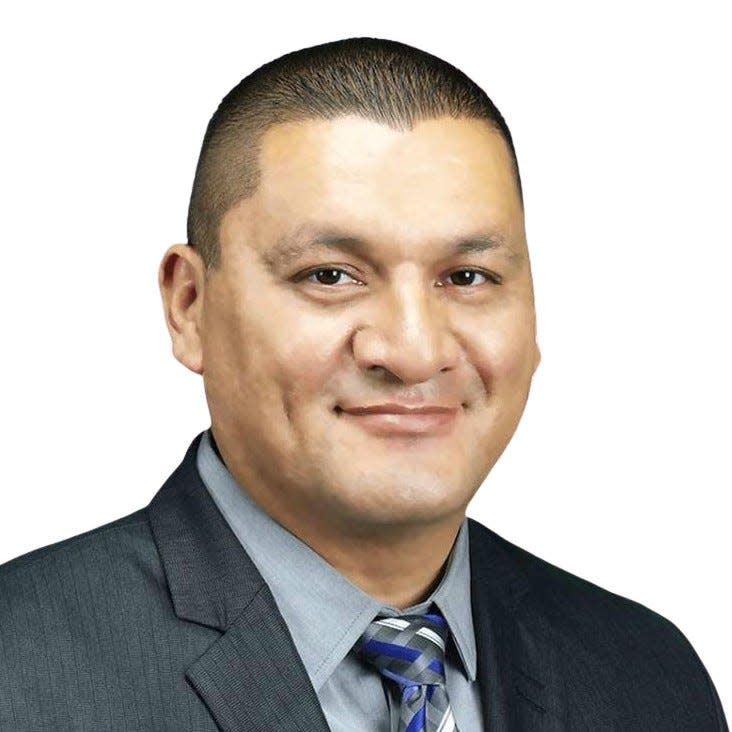
‘God bless America’
Large sums of outside money can be effective in swaying elections if used strategically, experts say, especially in a county with historically low voter turnout, like Imperial. But it doesn't always pay off.
For his campaign, fourth district candidate Navarro gave himself a $900 loan, and received more than $35,000 in either direct donations or targeted mailers and online efforts from sources he said he doesn't know, according to campaign disclosure forms. Navarro said he ran because he thought the poorest, northern stretches of the county deserved more resources, and needed a change after three terms served by Kelley. He didn't receive an EPIC PAC mailer praising him and damning Kelley, but said friends who did get it let him know about it.
Despite the outside financing, Navarro came in third out of four candidates against Kelley, who said he stepped up his campaign expenditures to about $50,000 after the hit piece targeting him was mailed to voters in the district.
Kelley received no PAC funds, his finance reports show. In addition to major support from area farmers, he received $5,200 from an Australian lithium company and $10,400 from individuals he said are linked to a South Korean battery company. He also received what his disclosure forms list as 10 donations of $99 each from an "unknown person" or people residing in Brawley, his hometown. Any donations of $100 or more must be reported with a name.
Navarro said no donors had approached him about any issues or his campaign, and he has no ill will toward Kelley or any of his opponents.
"I ran, I lost, and now I'm back to walking my dog," Navarro said. "God bless America, and God bless the Northend too."
USA Today California Elections Fellow Kathryn Palmer contributed to this report.
Janet Wilson is senior environment reporter for The Desert Sun and co-authors USA Today Climate Point. She can be reached at jwilson@gannett.com.
This article originally appeared on Palm Springs Desert Sun: Lithium Valley: Imperial County sees 'suspicious' flow of dark money


